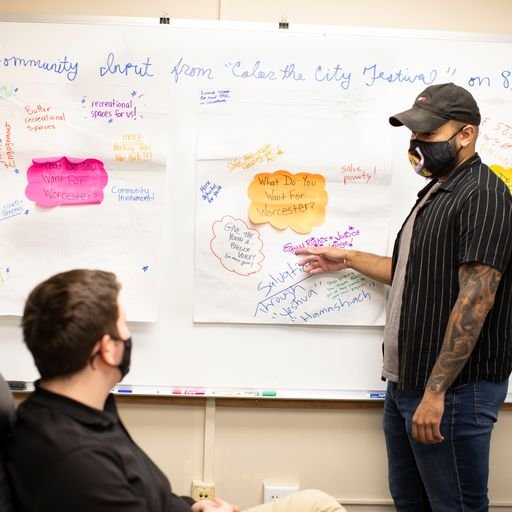
The Community Health Improvement Plan (CHIP) is a regional strategic plan for addressing health disparities and improving community health over a five year period.
The 2021 - 2026 CHIP calls out 3 municipal Racial Equity Strategies, 12 Community-Wide Policy Changes, and 6 priority service strategies in the Action Agenda necessary to enact structural changes toward improved health for all.
-

Adopt Community-led Racial Equity Policies
-

Community-Wide Policy Change Campaigns
-

Prioritized Strategy and Action Agenda
The 2021-2026 CHIP was built with four principles in mind:
-

Invest first in the community.
Whether access to food, the built environment, or job readiness, the solution to each of these and many other barriers to health begins with investing first in the community.
-

Elevate, listen to, and respect the community’s voice.
The community should be at the center of all decisions to create an equitable and responsive public health system. Funding and policy-making decisions require multiple input sessions from the community before taking action.
-

Eliminate gaps between services.
The Greater Worcester area boasts high-quality social, health, and associated services, but navigating between these services proves difficult. A "no wrong door" approach is needed; when someone seeks assistance in one area, they should be seamlessly connected to the appropriate service, regardless of the scope of that agency's services.
-

Honor trauma-informed resilient approaches to care.
Justice for marginalized populations is often described only in terms of trauma-informed approaches and care, neglecting that justice is built on resilience, not fragility.
In the CHIP and all our work, our overarching goal remains to be health equity. We define health equity as…
“Attaining full health potential and wellness as experienced and honored through one’s many intersecting identities (race, sex & gender, sexuality, socio-economic status, ability status, immigration status, religion, etc.), and that of their family and communities.”
— Samantha Calero, Adapted from the Boston Public Health Commission, 2019.
